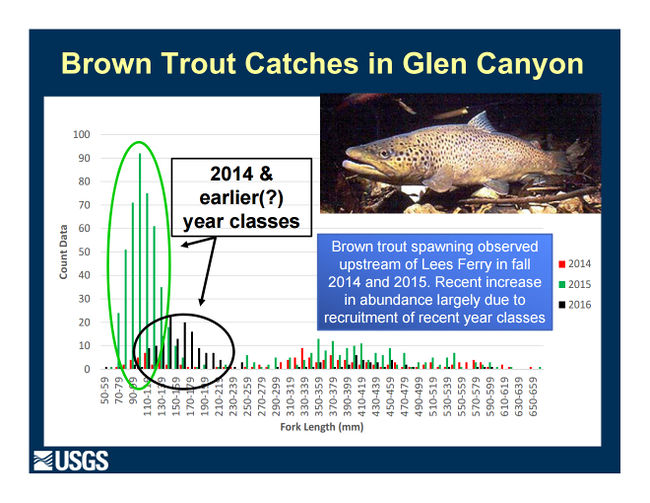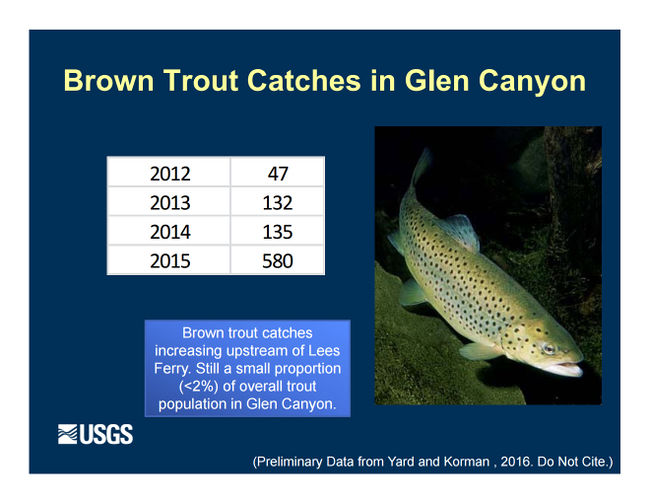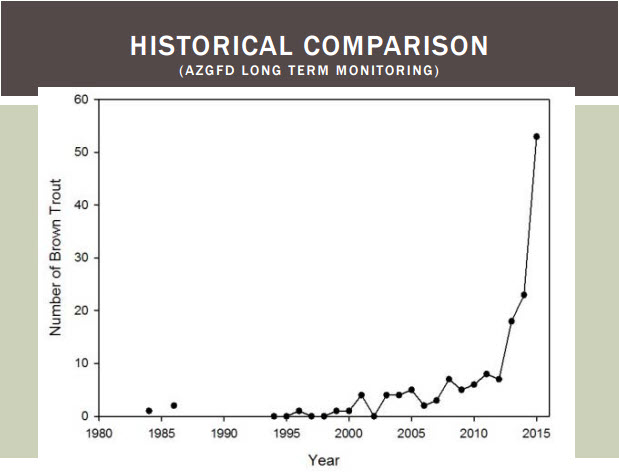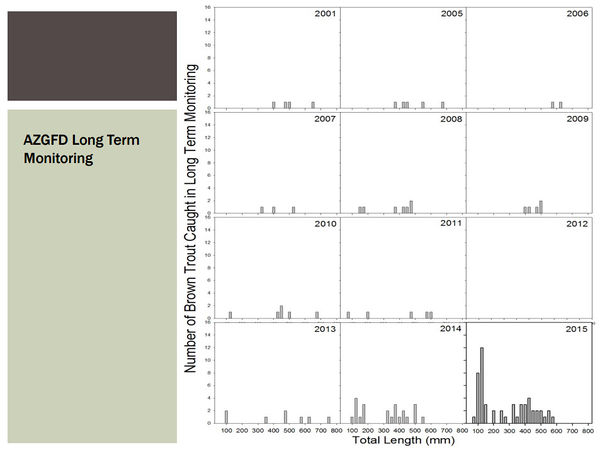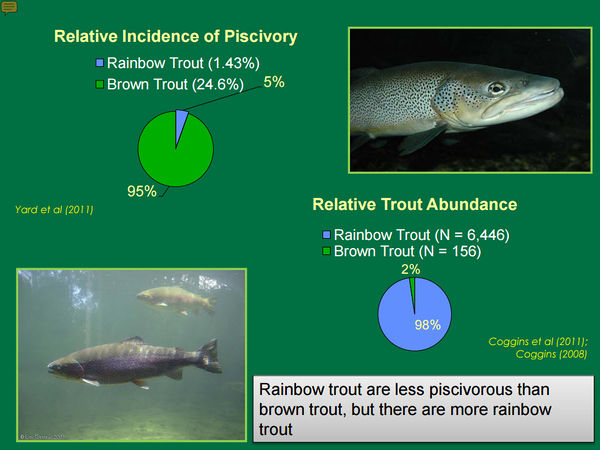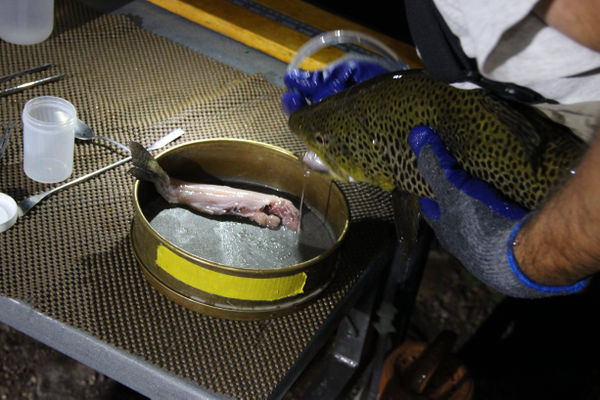Difference between revisions of "Brown Trout"
Cellsworth (Talk | contribs) |
Cellsworth (Talk | contribs) |
||
| Line 51: | Line 51: | ||
Hi TWG, | Hi TWG, | ||
| − | As many of you all know by now, recent field work in Glen Canyon resulted in an higher number of brown trout captures compared to last year. I have received numerous inquiries from TWG members who want to learn more about the status of brown trout downstream from Glen Canyon Dam, therefore, please call in for an informational webinar on November 10 from 10:00 am to 12:00 pm MST (aka, Arizona | + | As many of you all know by now, recent field work in Glen Canyon resulted in an higher number of brown trout captures compared to last year. I have received numerous inquiries from TWG members who want to learn more about the status of brown trout downstream from Glen Canyon Dam, therefore, please call in for an informational webinar on November 10 from 10:00 am to 12:00 pm MST (aka, Arizona) or 9:00 am to 11:00 am Pacific to learn more. Dave Rogowski will present AZGFD data first followed by Josh Korman and Mike Yard who will present data from the natal origins project. After the presentations, we can discuss potential underlying causes of these recent increases. |
Thanks, | Thanks, | ||
Revision as of 14:21, 7 November 2016
|
|
Brown TroutBrown trout are native to Europe and were introduced to tributaries in the Grand Canyon in the 1920s. They are capable of withstanding slightly higher temperature than other trout. Unlike most other trout species, brown trout spawn in the late fall. Their spawning behavior, however, is similar to other trout species. Like rainbow trout, young brown trout feed on aquatic and terrestrial insects and invertebrates but brown trout are more apt to switch to eating other fish as they get bigger. The rainbow trout found in Grand Canyon are more likely to continue to eat mostly insects and invertebrates even as adults. [1] Studies have shown that rainbow trout and native fish like humpback chub often have a difficult time persisting in the presence of a large population of brown trout. [2] [3] [4] Desired Future Condition for the Lees Ferry Trout FisheryA high quality trout fishery in GCNRA, as further described in the Recreation DFC that does not adversely affect the native aquatic community in GCNP. |
| File:RainbowTrout1.jpg* Rainbow Trout |
File:BrownTrout1.jpg* Brown Trout |
|---|
|
|
